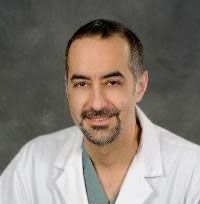
This quarterly newsletter highlights the latest and most relevant publications in our field, as well as association news, and updates on meetings and educational activities.
The IPITA Young Investigator Committee interviewed the 2021 Award Winners.
Joint JDRF NIH Workshop on Beta Cell Replacement Therapies in T1D
The Joint JDRF NIH Workshop on Beta Cell Replacement Therapies in T1D took place at the NIH Campus on May 18-19, 2022. The goal of the workshop was to discuss how to accelerate the clinical development of beta cell therapies in T1D. Speakers and panelists from the regulatory, industrial, clinical and research sectors provided their prospective on the topic. Dr. Albert J. Hwa, Program Director of the NIH NIDDK Division of Diabetes, Endocrinology and Metabolic Diseases and Dr. Alice Tomei, Associate Professor of Biomedical Engineering at the University of Miami and Diabetes Research Institute summarized the main topics discussed below.
Improved technologies to provide more precise engineering of the materials and devices for beta cell replacement were discussed. Overall, more attention is now paid to scaling up and CMC of beta cell production, as well as ways to characterize the heterogenous cell populations in stem cell-derived islets as replenishable sources of beta cells to replace cadaveric islets. Increasing combinations of the cells within devices were presented, including some strategies that take advantage of the wound healing response to establish prevascularized sites for beta cell delivery. A multitude of approaches to improve the engraftment efficiency at extrahepatic sites and to minimize the use of immunosuppression to prevent rejection and recurrence of autoimmunity after transplantation of allogenic beta cells were presented. And this included the exciting development in genetic engineering of human stem cells and porcine islets to reduce immunogenicity and increasing safety of the beta cell product. As we increase the complexity of the beta cell product, productive discussions on useful preclinical models to help inform the assessment of biocompatibility, safety, integration with the host and cell function after cell transplantation were discussed. Challenges in selecting preclinical models to predict human host responses before initiating trials in patients were highlighted indicating the ongoing work to evaluate such new research approaches for translation. FDA speakers discussed the regulatory framework for testing these novel products in humans. The patient panel discussion informed the attendees on why we are all here to move toward a goal of widely applicable beta cell therapy with excitement towards new therapies. A summary of the experience of CIT trials and the exciting development of new stem cell derived products now in clinical testing were also provided. Better tools to evaluate and stratify patients, for qualifying inclusions and to have better trial outcome measures, and innovative clinical trial designs are now available to improve future trials. With the continuing improvement in diabetes care, careful considerations on clinical trial design especially for the new products entering clinical testing need to be made. Overall, the workshop indicates that we are really at an exciting time to see translation to move beta cell replacement research from bench to bedside, fostered by increasing multidisciplinary collaborations, and certainly a ton of progress has been made since the last meeting in 2009.
Recent Publications of Interest
Clinical Pancreas
Journal of Clinical Medicine, 2022, doi: 10.3390/jcm11092563
Transplant International, 2022, doi: 10.3389/ti.2022.10419
Clinical Transplantation, 2022, doi: 10.1111/ctr.14498
Transplantation, 2022, doi: 10.1097/tp.0000000000004088
Transplantation Direct, 2022, doi: 10.1097/txd.0000000000001321
Transplantation, 2022, doi: 10.1097/tp.0000000000004104
Journal of Clinical Medicine, 2022, doi: 10.3390/jcm11082258
Diabetes Research and Clinical Practice, 2021, doi: 10.1016/j.diabres.2021.109120
Transplantation, 2022, doi: 10.1097/tp.0000000000003710
Transplant International, 2022, doi: 10.3389/ti.2022.10109
Transplantation, 2022, doi: 10.3389/ti.2022.10109
Transplant International, 2022, doi: 10.3389/ti.2022.10223
Clinical Transplantation, 2022, doi: 10.1111/ctr.14599
Journal of Clinical Medicine, 2022, doi: 10.3390/jcm11092421
The Journal of Immunology, 2021, doi: 10.4049/jimmunol.2001103
Transplantation, 2022, doi: 10.1097/tp.0000000000004133
Transplantation, 2022, doi: 10.1097/tp.0000000000003627
Clinical Islet
Transplant International, 2021, doi: 10.1111/tri.14163
Transplantation, 2022, doi: 10.1097/tp.0000000000004104
American Journal of Transplantation, 2021, 10.1111/ajt.16785
American Journal of Transplantation, 2022, doi: 10.1111/ajt.16884
Cell Stem Cell, 2021, doi: 10.1016/j.stem.2021.10.003
Cell Reports Medicine, 2022, doi: 10.1016/j.xcrm.2021.100466
Transplantation 2022, doi: 10.1097/tp.0000000000004058
The lancet. Diabetes & endocrinology 2022, doi: 10.1016/s2213-8587(22)00114-0
Pancreatology 2022, doi: 10.1016/j.pan.2022.04.009
Cytotherapy 2022, doi: 10.1016/j.jcyt.2021.09.015
The Journal of Clinical Endocrinology & Metabolism 2021, doi: 10.1210/clinem/dgab787
Pancreatology 2022, doi: 10.1016/j.pan.2021.09.011
American Journal of Transplantation 2021, doi: 10.1111/ajt.16695
Journal of Clinical Medicine 2022, doi: 10.3390/jcm11061645
Transplantation Proceedings 2022, doi: 10.1016/j.transproceed.2021.11.037
Beta-Cell Science
Transplant International, 2022, doi: 10.3389/ti.2021.10214
Analyst, 2022, doi: 10.1039/d2an00222a
Stem Cell Reports, 2022, doi: 10.1016/j.stemcr.2022.02.001
Science Advances, 2022, doi: 10.1126/sciadv.abm9881
Nature Biotechnology, 2022, doi: 10.1038/s41587-022-01219-z
Stem Cell Reports, 2022, doi: 10.1016/j.stemcr.2022.01.018
Nature Medicine, 2022, doi: 10.1038/s41591-021-01645-7
Diabetes, 2022, doi: 10.2337/db21-0926
American Journal of Transplantation, 2022, doi: 10.1111/ajt.17019
Nature Medicine, 2022, doi: 10.1038/s41591-022-01718-1
Stem Cells Translational Medicine, 2022, doi: 10.1093/stcltm/szac018
Nature Communications, 2022, doi: 10.1038/s41467-022-29377-3
Nature Communications, 2022, doi: 10.1038/s41467-022-28360-2
Journal of Tissue Engineering, 2022, doi: 10.1177/20417314221091033
Reviews
Molecular Metabolism,2022, doi: 10.1016/j.molmet.2022.101477
Frontiers in Immunology, 2022, doi: 10.3389/fimmu.2022.869514
Clinical Transplantation, 2022, doi: 10.1111/ctr.14615
Canadian Journal of Diabetes, 2021, doi: 10.1016/j.jcjd.2021.11.002
Frontiers in Endocrinology, 2022, doi: 10.3389/fendo.2021.789526
Nature Reviews. Endocrinology, 2022, doi: 10.1038/s41574-022-00689-0
American Journal of Transplantation, 2022, doi: 10.1111/ajt.16647
he lancet. Diabetes & endocrinology, 2022, doi: 10.1016/s2213-8587(22)00138-3
Contact
Address
International Pancreas & Islet Transplant Association
c/o The Transplantation Society
740 Notre-Dame Ouest
Suite 1245
Montréal, QC, H3C 3X6
Canada



